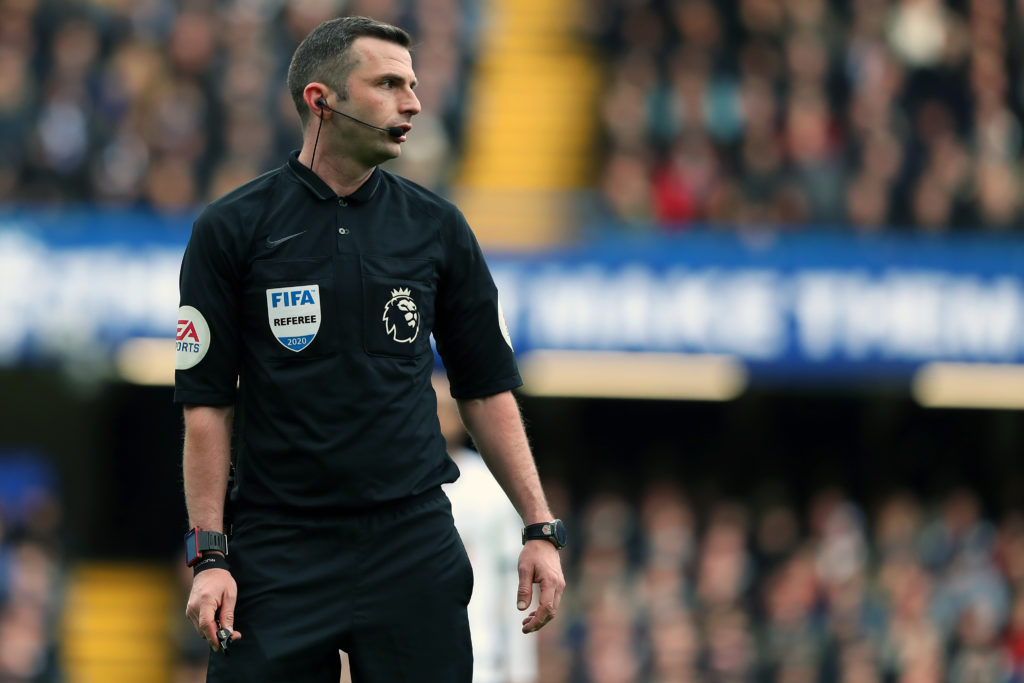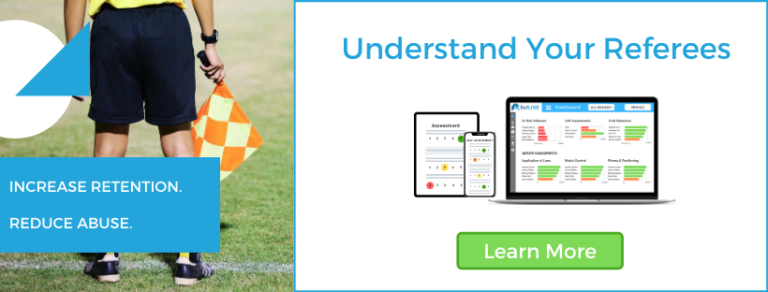Would you turn up to referee a game if you hadn’t trained at all in the build up to a matchday?
As you’ll be aware, in order to be successful, as a match official, you have to be prepared to put the work into conditioning yourself appropriately towards the demands of your game.
Most referees are quite thorough when it comes to their physical training: spending long periods on the track and pounding the streets to put miles into their legs, pedaling countless hours on the bike and partaking in less heavy compression activities such as swimming.
However, to achieve success out in the middle requires more than simply physical training alone.
Successful Refereeing Depends on Your Mental Strength:
- How do you stay motivated during long hours of continuous training?
- How do you deal with the discomfort of training or niggling injuries?
- How can you maintain your focus for long phases of play during a fixture?
- How do you manage your time off and relax when not training or out on a game?
- How are you able to control your fears and expectations prior to blowing the first whistle?
- How quickly can you bounce back after a bad poor performance?
The amount of mental strength you have is directly proportional to the amount of mental training you subject yourself to.
It is an impossibility to be mentally prepared and mentally strong if you’ve not paid any attention to your mental training. Similarly, you cannot be physically and technically prepared if you haven’t engaged in countless hours of improving Law knowledge, cycling and running.
In the case of Chrissie Wellington, a four-time Ironman Triathlon World Champion and World Record holder, she is someone who credits her success to more than just elite level physical training, but also to her diligent mental training.
Wellington hung her hat on her mental training to help her overcome many athletic and personal challenges, she consistently pushed her body and mind throughout her rigorous training program and this helped her become one of the most accomplished triathletes in the sport.
“All the physical strength in the world won’t help you if your mind is not prepared. This is part of training – the part that people don’t put in their log books; the part that all the monitors and gadgets in the world can’t influence or record. And the mind can be trained just like a muscle and becoming mentally strong requires patience and practice.” – Chrissie Wellington, four-time Ironman Triathlon World Champion & World Record holder
Wellington is a fantastic role model for achieving and showing what success looks like.
Success is more than having the best coloured whistle or the most aesthetically pleasing boots. Success is more than having a really strong carding technique. Success is more than being able to run for days on end.
Success requires a strong set of mental skills which allow you to get the most out of your physical capabilities.
In order to determine if you are making the most of your capabilities, ask yourself the following questions:
- What am I doing to promote confidence in my refereeing?
- What strategies do I have in place to stay calm and composed in the middle of a season if I have a run of below par performances?
- What have I done to improve my ability to stay focused?
- What have I done to push myself beyond my comfort-zone on a regular basis?
If you are unable to answer these questions, consider how much improvement you would see in your refereeing with even a low level of commitment to mental training.
How to Improve Your Game Mentality For Officiating:
Review the previous mental skills questions. Identify one mental skill, be it confidence, focus, managing your emotions, composure or pushing beyond your comfort-zone, that can improve your consistency out in the middle. You should then be ready to set your mental training into motion. Look to break things down and start with one mental skill, such as managing your emotions, and build upon that one skill firstly. Coach yourself to be as meticulous in building up your mentality as you are when you build up your physical fitness in the gym.
At The Third Team I work individually and in collaboration with different professionals where I have developed workshops associated with Resilience and Mental Toughness Development to help referees. The workshops are interactive, where referees are encouraged to open up and share their experiences to help each other.
Feel free to contact me if you’d like to know more about my workshops and how I could help you or your officials.
Best Wishes,

Nathan Sherratt
Referee Educator & Managing Director of The Third Team

Nathan Sherratt
Nathan Sherratt, Referee Educator, Resilience Trainer and Managing Director of The Third Team. A Mental Toughness Practitioner based in County Durham, North East England.


